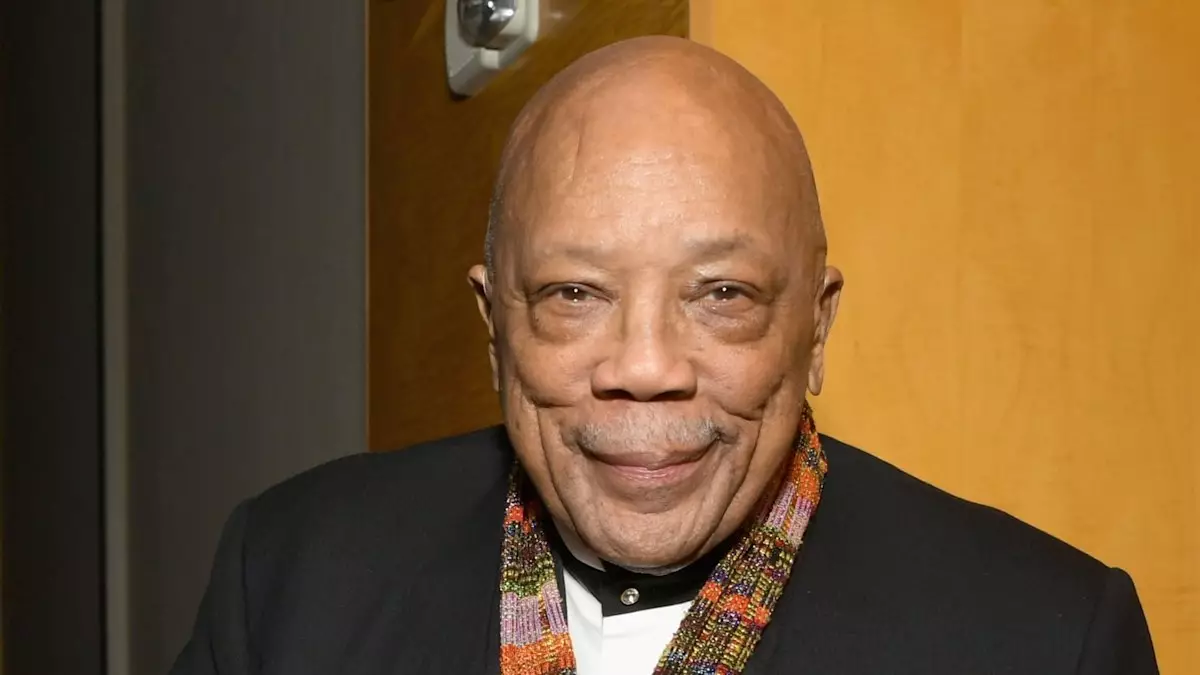Quincy Jones, an unparalleled figure in the music and entertainment industry, passed away at the age of 91 on November 3. His legacy is monumental, boasting not only a diverse collection of groundbreaking musical compositions but also numerous significant contributions to film and social activism. The outpouring of grief following his death echoes the deep influence he had on countless artists, including the King of Pop, Michael Jackson, and iconic films such as *The Color Purple* and *The Wiz*. Jones’s life story transcends mere artistic achievement; it is a narrative intertwined with resilience and passion, showcasing a man who faced mortality yet continued to shine.
One of the defining moments of Jones’s life occurred in the mid-1970s when he suffered a life-threatening brain aneurysm at just 41 years old. In vivid recollections, he expressed the intensity of the pain as something that felt like “somebody blew my brains out.” This harrowing experience forced him to confront not only his own mortality but the fragility of life itself. After undergoing emergency surgery, Jones learned he had a second aneurysm with a grim prognosis—a mere 1% chance of survival in the event of another operation.
Remarkably, even after such an alarming diagnosis, his spirit remained indomitable. Jones embarked on a tour shortly after his recovery, choosing to defy the warnings from medical professionals about resuming his musical career. Tragically, he felt severe pain once again, leading to the disheartening revelation that the surgical clip meant to secure the vulnerable blood vessel was precariously close to loosening. The episode mirrored the paradox of his larger-than-life persona—full of boldness and artistry, yet shadowed by the threat of his own mortality.
In what is perhaps one of the more poignant anecdotes from his recovery, Jones attended a memorial service arranged by his friends and family during his health crisis. They believed that he would not survive the aftermath of his first operation, leading to what would have been a farewell to an extraordinary figure. With a twist of fate, Quincy not only attended his own memorial but graced it with his presence, surrounded by prominent figures such as Richard Pryor, Marvin Gaye, and Sarah Vaughan—each offering tributes that would resonate in his memory.
This unconventional scenario revealed more than just the thriving network Jones cultivated throughout his life; it showcased his vibrant spirit and zest for living. Attending his own tribute, he humorously reflected on how challenging it was to remain calm amid such an outpouring of love and admiration. It was a testament to his unwavering charisma and the profound impact he made on those around him.
Jones’s contributions extended beyond music and film—he was also a formidable advocate for social justice. Throughout his career, he was a vocal supporter for civil rights and worked to address various societal issues, using his platform to champion inclusion and diversity in the arts. His activism served as a beacon for future generations of musicians and creators, emphasizing that art can be a powerful vehicle for change.
His ability to galvanize diverse groups through music and activism truly exemplifies the essence of Quincy Jones. His collaborations with artists from different backgrounds and cultures fostered a unique blend of genres that revolutionized the music industry. This spirit of collaboration helped cultivate a more inclusive landscape, ripe for the exchange of ideas and sounds.
As the world remembers Quincy Jones, it reflects not only on his extraordinary body of work but also on the values he imbued in his life. His courage in the face of adversity, relentless creativity, and dedication to making the world a better place have left an indelible mark on music, film, and society at large. The legacy he has left behind is not just in the notes he wrote or the films he scored, but in the hearts of those he inspired. Quincy Jones’s journey reminds us that music is not merely entertainment, but a trunk of shared human experiences, emotions, and change. As we celebrate his life, let us carry forward the lessons he imparted and strive to continue his mission of compassion and creativity.

